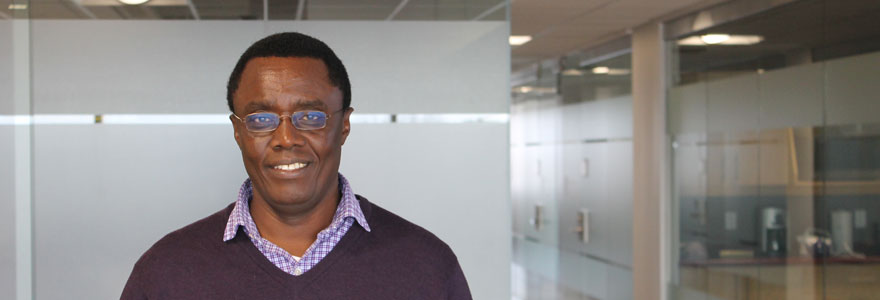News and Updates
Contact
Faculty of Social Science
Social Science Centre
Room 9438
Western University
T. 519-661-2053
F. 519-661-3868
E. social-science@uwo.ca
Luginaah investigates a traditional response to our modern problems
July 22, 2019
Story and photo by Rob Rombouts
Can a traditional farming practice help farmers mitigate the challenges created by climate change?
Isaac Luginaah, Professor in the Department of Geography, has received a 4-year, $175,265 SSHRC grant to understand how seed security and social connections may help farmers in Malawi deal with the effects of climate change.
Luginaah is working with co-applicants, Tim Conley, from the Department of Economics, and Jinfei Wang, from the Department of Geography, along with Paul Mkandawire from Carleton University, and collaborators from five different organizations or institutions.
Malawi is one of the poorest countries in the world. In 2006, in the face of this economic position and difficult growing conditions, the government of Malawi introduced an agricultural input subsidy program. Through the program, farmers were encouraged to buy fertilizer and hybrid maize, intended for higher yields, and a shorter growth cycle.
The intent was to increase production of maize, thus increasing the amount of food available, as a possible solution for food insecurity. This push has created its own set of difficulties, Luginaah points out. The increased reliance on maize, however, has disturbing implications for long-term resilience, as it is less drought-tolerant and provides limited nutritional benefits in terms of micronutrients.
“Farmers are having trouble within maintaining crop diversity,” said Luginaah. “With a focused on modified seeds, traditional drought tolerant crops are disappearing.”
Luginaah also points out that mono-cropping, the practice of growing the same crop year after year, results in more stress on the soil, leading to crop failure and seed insecurity. It also leads to less dietary diversity with a decrease in nutritional options.
The Malawian government declared a State of Emergency over severe droughts in both 2014 and 2016, with another drought in 2018. In March 2019, there was severe flooding as result of Cyclone Idai. The increasing frequency of droughts and extreme weather events means that the results from this project will have broader implications for seed security and climate change resilience in Malawi and the other sub-Saharan African countries. Part of the study will focus on scenario planning, working with farmers to project possible outcomes and effects of climate change.
One solution to these problems could be the traditional social networks that farmers keep, between family, friends and neighbours. Through these networks, farmers share seeds, and can encourage crop diversity.
“Farmer social networks reinforce resiliency,” said Luginaah. “In the context of farmers, we want to know how they rely on their social networks, and how it improves their chance at success. This component of the project is been led by Dr. Tim Conley in the Department of Economics. ”
The work, while very important to Malawi, is also important and applicable around the world, as many growing areas face challenges due to climate change.
“There are so many different things that could happen,” said Luginaah. “How do you plan for the future? Who do you rely on for seeds? What seeds do you grow?”

